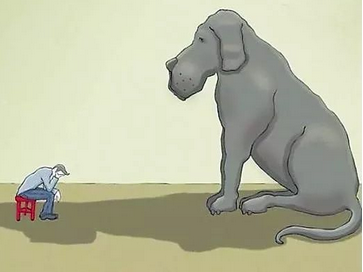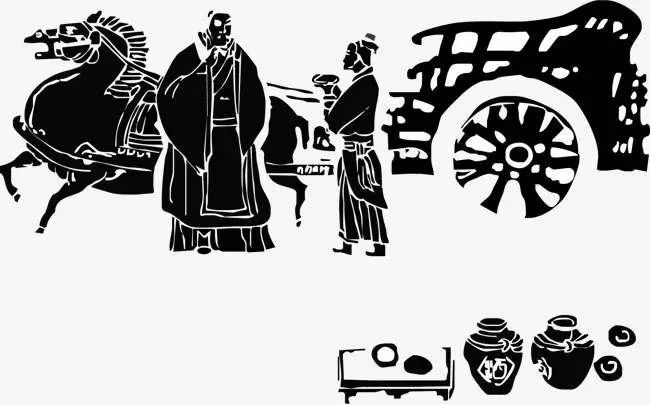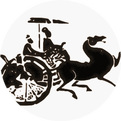Inheriting the legacy of Qi Huang, a public account with substance and warmth.
Ai Yu Xiang Tang
The “Nei Jing” first mentions the “Five Stagnations”: Wood stagnation leads to its release, Fire stagnation leads to its eruption, Earth stagnation leads to its deprivation, Metal stagnation leads to its drainage, and Water stagnation leads to its collapse. It is evident that the Five Stagnations in the “Nei Jing” are based on the Five Movements and Six Qi.
The “Medical Canon” states: The so-called Six Stagnations are Qi, Dampness, Heat, Phlegm, Blood, and Food. When Qi is stagnant, it leads to Dampness; Dampness leads to Heat; Heat leads to Phlegm; Phlegm leads to Blood stasis; Blood stasis leads to Food stagnation. These six are interrelated and cause illness. Therefore, the treatment should prioritize regulating Qi, followed by resolving accumulations. Thus, herbs like Xiang Fu (Cyperus rotundus) and Fu Ling (Poria) are often used, as this principle is essential, and learners should understand this meaning. It can be seen that Dan Xi’s Six Stagnations are discussed from the perspective of etiology and pathogenesis.
 In the human body, the Wood stagnation in the Five Stagnations refers to Liver stagnation. Among the Five Stagnations, Wood stagnation is of primary importance, hence it is said that “all stagnations are caused by Liver disease”.Among the Six Stagnations, Qi stagnation is the leader, followed by Dampness, Phlegm, Heat, Blood, and Food stagnations. Although Dan Xi’s Six Stagnations differ in expression from the Five Stagnations in the “Nei Jing”, it also points out that “all diseases in the human body arise from stagnation”, indicating that the meaning of the Six Stagnations is also connected to the essence of the Five Stagnations.Let us analyze the basic pathogenesis of stagnation syndrome: it may be due to unfulfilled desires, sudden stimuli, poverty, or excessive longing, leading to Liver failure in regulating and dispersing, Spleen failure in transformation and transportation, and Heart failure in nourishment, resulting in an imbalance of Yin, Yang, Qi, and Blood in the organs. The onset of stagnation syndrome is most closely related to the Liver, involving the Heart and Spleen. The pathological nature has both deficiency and excess: initially dominated by Qi stagnation, accompanied by Blood stasis, Heat transformation, Phlegm accumulation, and Food stagnation, which belong to excess syndrome. In later stages, it may lead to Yin deficiency and excessive Fire due to Liver stagnation harming Yin, or due to Spleen damage leading to insufficient Qi and Blood production, resulting in Heart and Spleen deficiency syndrome, transitioning from excess to deficiency, leading to Yin deficiency and Blood deficiency syndrome. Prolonged illness will lead to different pathological changes in the Heart, Spleen, Liver, and Kidney due to the varying impacts on the organs and the consumption of Qi, Blood, Yin, and Yang. Stagnation syndrome often damages Qi, Blood, and Yin fluids, and this should not be simply treated by dispersing. If one is already deficient, dispersing will only lead to further deficiency.The stagnation syndrome mentioned earlier is actually what we commonly refer to as Liver Qi stagnation syndrome. Liver Qi stagnation syndrome is due to the abnormal function of the Liver in regulating and dispersing, leading to Qi stagnation. Emotional depression or irritability, sighing frequently, fullness and pain in the chest and flanks or lower abdomen, a sensation of a foreign body in the throat, goiter in the neck, or masses under the ribs; in women, breast tenderness, irregular menstruation, dysmenorrhea, and even obesity can occur. The tongue coating is thin and white, and the pulse is wiry, which are its symptoms.Why does the Liver’s failure to regulate and disperse lead to Qi stagnation? Unexpected fright, unwarranted worries, and excessive longing all belong to the category of the Seven Emotions, and these negative emotions are repressive and descending, which counteracts the Liver Qi’s natural tendency to be smooth and ascending. The greater these negative emotions, the more detrimental they are to the generation of Liver Qi, severely obstructing the Liver’s regulatory function. The result is the aforementioned transition from excess to deficiency, affecting Qi, Blood, and ultimately leading to damage to both Yin and Yang.Thus, we can summarize the general progression of Liver Qi stagnation syndrome: injury from the Seven Emotions, overthinking and fatigue, inherent organ deficiency – Liver Qi stagnation syndrome – (initial stage) primarily Qi stagnation with Blood stasis, Heat transformation, Phlegm accumulation, and Food stagnation as excess syndromes – (later stage) either due to Fire stagnation harming Yin leading to Heart and Kidney Yin deficiency syndrome, or due to Spleen damage resulting in insufficient Qi and Blood production, leading to Heart and Spleen deficiency syndrome. From this progression, we can draw a basic conclusion: if Liver Qi stagnation syndrome cannot be cured in the early stage, or if it is mismanaged, then in the later stage, the deficiency of Qi, Blood, Yin, and Yang is an inevitable outcome.As mentioned earlier, Liver Qi stagnation will inevitably lead to Qi stagnation, and Qi stagnation will ultimately lead to Qi deficiency. Therefore, in later treatment, the focus should be on tonifying and nourishing, while also driving out evil. In Traditional Chinese Medicine, Qi deficiency has two different categories. The “Huang Di Nei Jing, Su Wen, Lun Zhi” states: “Qi excess is heat, Qi deficiency is cold.” Here, the Qi deficiency referred to is “Yang Qi deficiency”, as Yang deficiency leads to cold. However, the Qi deficiency we usually refer to is another situation, which is when both Yin and Yang Qi are deficient in a relatively balanced state, and the manifestation will not lean towards cold or heat, but rather “shortness of breath and weakness”.Among all stagnations, Qi stagnation is primary, and among all deficiencies, Qi deficiency is also primary, so individuals with Liver Qi stagnation are often those with Qi deficiency. Once a person has Qi deficiency, the functions of the organs will weaken, the Spleen and Stomach will fail to receive and transform, the Liver and Gallbladder will lose their ability to regulate and ascend, the Lungs will not be able to properly govern the circulation of Qi, and the Kidneys will not be able to store essence and regulate water. Dysfunction of the organs will inevitably affect the functions of the Spleen, Stomach, and intestines, leading to ineffective utilization of food, resulting in insufficient absorption of nutrients and failure to timely and effectively eliminate metabolic waste. Substances that should be transformed into Qi cannot be transformed, accumulating in the body and turning into fat, nourishing the subcutaneous tissue, which is the cause of obesity. Therefore, a person’s obesity ultimately stems from Qi deficiency.In daily life, many people around us have the habit of “sighing frequently”, whether due to work pressure, tense relationships with colleagues, marital discord, or neighborhood disputes. If you occasionally sigh a few times, it is not a big deal. But if you frequently sigh involuntarily, then from a Traditional Chinese Medicine perspective: you are depressed! Let us look at the two characters “anger” and “depression”. First, the character for “anger” consists of a slave character and a heart character; being treated as a slave, no one would be willing, hence the anger. Traditional Chinese Medicine believes that anger is related to the Liver’s will, as the Liver can express the emotion of anger. When a person encounters setbacks or fails to achieve certain goals, anger may be their primary emotional response.Anger can boost morale and inspire fighting spirit; hatred and anger towards enemies can be transformed into combat power.However, excessive anger can harm the Liver, leading to Liver failure in regulating and dispersing, Liver Qi stagnation, Blood stasis, and excessive Liver Yang, among other syndromes. Frequent anger can also lead to cardiovascular diseases or exacerbate existing conditions. Niu Gao died from laughter, while Jin Wu Shu, who sat beneath him, died from anger; according to Traditional Chinese Medicine, Wu Shu’s death was due to excessive Liver Yang, leading to a stroke.Now let us look at the character for “depression”; the “heart” is trapped behind a “door”, unable to come out, which naturally leads to dissatisfaction, making a person feel fatigued and depressed, unable to find joy, and they can only sigh to relieve their mood. Thus, stagnation leads to depression.It can be seen that excessive Liver Qi can easily lead to anger, while weak Liver Qi can easily lead to depression. Therefore, individuals with Qi deficiency are often those with Liver Qi stagnation, and conversely, those with Liver Qi stagnation are often individuals with Qi deficiency.This is for clinical reference only; non-professional doctors should not attempt acupuncture or medication.
In the human body, the Wood stagnation in the Five Stagnations refers to Liver stagnation. Among the Five Stagnations, Wood stagnation is of primary importance, hence it is said that “all stagnations are caused by Liver disease”.Among the Six Stagnations, Qi stagnation is the leader, followed by Dampness, Phlegm, Heat, Blood, and Food stagnations. Although Dan Xi’s Six Stagnations differ in expression from the Five Stagnations in the “Nei Jing”, it also points out that “all diseases in the human body arise from stagnation”, indicating that the meaning of the Six Stagnations is also connected to the essence of the Five Stagnations.Let us analyze the basic pathogenesis of stagnation syndrome: it may be due to unfulfilled desires, sudden stimuli, poverty, or excessive longing, leading to Liver failure in regulating and dispersing, Spleen failure in transformation and transportation, and Heart failure in nourishment, resulting in an imbalance of Yin, Yang, Qi, and Blood in the organs. The onset of stagnation syndrome is most closely related to the Liver, involving the Heart and Spleen. The pathological nature has both deficiency and excess: initially dominated by Qi stagnation, accompanied by Blood stasis, Heat transformation, Phlegm accumulation, and Food stagnation, which belong to excess syndrome. In later stages, it may lead to Yin deficiency and excessive Fire due to Liver stagnation harming Yin, or due to Spleen damage leading to insufficient Qi and Blood production, resulting in Heart and Spleen deficiency syndrome, transitioning from excess to deficiency, leading to Yin deficiency and Blood deficiency syndrome. Prolonged illness will lead to different pathological changes in the Heart, Spleen, Liver, and Kidney due to the varying impacts on the organs and the consumption of Qi, Blood, Yin, and Yang. Stagnation syndrome often damages Qi, Blood, and Yin fluids, and this should not be simply treated by dispersing. If one is already deficient, dispersing will only lead to further deficiency.The stagnation syndrome mentioned earlier is actually what we commonly refer to as Liver Qi stagnation syndrome. Liver Qi stagnation syndrome is due to the abnormal function of the Liver in regulating and dispersing, leading to Qi stagnation. Emotional depression or irritability, sighing frequently, fullness and pain in the chest and flanks or lower abdomen, a sensation of a foreign body in the throat, goiter in the neck, or masses under the ribs; in women, breast tenderness, irregular menstruation, dysmenorrhea, and even obesity can occur. The tongue coating is thin and white, and the pulse is wiry, which are its symptoms.Why does the Liver’s failure to regulate and disperse lead to Qi stagnation? Unexpected fright, unwarranted worries, and excessive longing all belong to the category of the Seven Emotions, and these negative emotions are repressive and descending, which counteracts the Liver Qi’s natural tendency to be smooth and ascending. The greater these negative emotions, the more detrimental they are to the generation of Liver Qi, severely obstructing the Liver’s regulatory function. The result is the aforementioned transition from excess to deficiency, affecting Qi, Blood, and ultimately leading to damage to both Yin and Yang.Thus, we can summarize the general progression of Liver Qi stagnation syndrome: injury from the Seven Emotions, overthinking and fatigue, inherent organ deficiency – Liver Qi stagnation syndrome – (initial stage) primarily Qi stagnation with Blood stasis, Heat transformation, Phlegm accumulation, and Food stagnation as excess syndromes – (later stage) either due to Fire stagnation harming Yin leading to Heart and Kidney Yin deficiency syndrome, or due to Spleen damage resulting in insufficient Qi and Blood production, leading to Heart and Spleen deficiency syndrome. From this progression, we can draw a basic conclusion: if Liver Qi stagnation syndrome cannot be cured in the early stage, or if it is mismanaged, then in the later stage, the deficiency of Qi, Blood, Yin, and Yang is an inevitable outcome.As mentioned earlier, Liver Qi stagnation will inevitably lead to Qi stagnation, and Qi stagnation will ultimately lead to Qi deficiency. Therefore, in later treatment, the focus should be on tonifying and nourishing, while also driving out evil. In Traditional Chinese Medicine, Qi deficiency has two different categories. The “Huang Di Nei Jing, Su Wen, Lun Zhi” states: “Qi excess is heat, Qi deficiency is cold.” Here, the Qi deficiency referred to is “Yang Qi deficiency”, as Yang deficiency leads to cold. However, the Qi deficiency we usually refer to is another situation, which is when both Yin and Yang Qi are deficient in a relatively balanced state, and the manifestation will not lean towards cold or heat, but rather “shortness of breath and weakness”.Among all stagnations, Qi stagnation is primary, and among all deficiencies, Qi deficiency is also primary, so individuals with Liver Qi stagnation are often those with Qi deficiency. Once a person has Qi deficiency, the functions of the organs will weaken, the Spleen and Stomach will fail to receive and transform, the Liver and Gallbladder will lose their ability to regulate and ascend, the Lungs will not be able to properly govern the circulation of Qi, and the Kidneys will not be able to store essence and regulate water. Dysfunction of the organs will inevitably affect the functions of the Spleen, Stomach, and intestines, leading to ineffective utilization of food, resulting in insufficient absorption of nutrients and failure to timely and effectively eliminate metabolic waste. Substances that should be transformed into Qi cannot be transformed, accumulating in the body and turning into fat, nourishing the subcutaneous tissue, which is the cause of obesity. Therefore, a person’s obesity ultimately stems from Qi deficiency.In daily life, many people around us have the habit of “sighing frequently”, whether due to work pressure, tense relationships with colleagues, marital discord, or neighborhood disputes. If you occasionally sigh a few times, it is not a big deal. But if you frequently sigh involuntarily, then from a Traditional Chinese Medicine perspective: you are depressed! Let us look at the two characters “anger” and “depression”. First, the character for “anger” consists of a slave character and a heart character; being treated as a slave, no one would be willing, hence the anger. Traditional Chinese Medicine believes that anger is related to the Liver’s will, as the Liver can express the emotion of anger. When a person encounters setbacks or fails to achieve certain goals, anger may be their primary emotional response.Anger can boost morale and inspire fighting spirit; hatred and anger towards enemies can be transformed into combat power.However, excessive anger can harm the Liver, leading to Liver failure in regulating and dispersing, Liver Qi stagnation, Blood stasis, and excessive Liver Yang, among other syndromes. Frequent anger can also lead to cardiovascular diseases or exacerbate existing conditions. Niu Gao died from laughter, while Jin Wu Shu, who sat beneath him, died from anger; according to Traditional Chinese Medicine, Wu Shu’s death was due to excessive Liver Yang, leading to a stroke.Now let us look at the character for “depression”; the “heart” is trapped behind a “door”, unable to come out, which naturally leads to dissatisfaction, making a person feel fatigued and depressed, unable to find joy, and they can only sigh to relieve their mood. Thus, stagnation leads to depression.It can be seen that excessive Liver Qi can easily lead to anger, while weak Liver Qi can easily lead to depression. Therefore, individuals with Qi deficiency are often those with Liver Qi stagnation, and conversely, those with Liver Qi stagnation are often individuals with Qi deficiency.This is for clinical reference only; non-professional doctors should not attempt acupuncture or medication. ID:hnbfdycx
ID:hnbfdycx

Ai Yu Xiang Tang
Copyright Statement:Editor/Doctor Dan, Proofreader/Chu Nan, Source from publicly available online materialsCopyright belongs to the original author If you find it helpful, please give alike!

